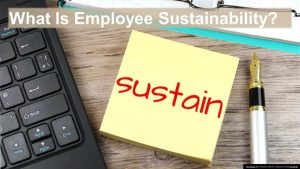The Covid-19 pandemic transformed the working world. Labor markets became tight, and remain so today. The rapid and dramatic changes resulted in shifts in what employees demanded and how employers responded. One of the most striking changes was the rapid and widespread adoption of remote work. Although the pandemic has receded, remote work policies remain in place because employees want flexibility in their working hours and locations at all times, not just during a public health emergency. They have also remained in place because they work for the employer. According to a report by Mercer, 90% of companies surveyed stated that productivity has stayed the same or improved with the transition to virtual work. Some even outperformed their conventionally employed peers.
dramatic changes resulted in shifts in what employees demanded and how employers responded. One of the most striking changes was the rapid and widespread adoption of remote work. Although the pandemic has receded, remote work policies remain in place because employees want flexibility in their working hours and locations at all times, not just during a public health emergency. They have also remained in place because they work for the employer. According to a report by Mercer, 90% of companies surveyed stated that productivity has stayed the same or improved with the transition to virtual work. Some even outperformed their conventionally employed peers.
The social isolation that resulted from the pandemic also had serious impacts on employee mental health, creating a new wave of opportunity for employers to respond to employee needs. In addition to mental health resources, mental health time off and shortened work weeks are innovative solutions that employers devised.
All companies require employees, even if the company is a solopreneur who wears both owner and employee hats. To be sustainable and succeed over time, companies need to cultivate an engaged workforce. As labor shortages result in demand exceeding supply, employees have greater leverage, requiring companies to fight for scarce talent. To attract employees and keep them engaged, companies need to know what employees want. Companies should engage with their employees, and use the input they receive to plan for and create a positive work environment where employees want to work. Fortunately, ESG (Environmental, Social, and Governance) frameworks provide a starting point for companies to develop an employee strategy that complements and enables their overall strategy.
sustainable and succeed over time, companies need to cultivate an engaged workforce. As labor shortages result in demand exceeding supply, employees have greater leverage, requiring companies to fight for scarce talent. To attract employees and keep them engaged, companies need to know what employees want. Companies should engage with their employees, and use the input they receive to plan for and create a positive work environment where employees want to work. Fortunately, ESG (Environmental, Social, and Governance) frameworks provide a starting point for companies to develop an employee strategy that complements and enables their overall strategy.
Beyond providing a framework for understanding and planning for employee needs, the fact alone that a company has an ESG strategy can help attract and retain employees. According to a report by Deloitte, Gen Zs and millennials want their employers to invest in visible, everyday environmental actions where the employees have an opportunity to be directly involved.
Virtual work options and mental health resources are just two examples of the opportunities employers have to attract and retain workers. To seize these opportunities, companies can rely on their ESG playbooks by:
- Treating employees as a key stakeholder group, and engaging with them to ascertain the issues that have a material impact on them.
- Making employee engagement and retention a key element of their strategic plan.
Contact Clear Strategy today to talk about employee-stakeholder engagement and developing an ESG-powered strategy.
© 2023 Clear Strategy Co.

